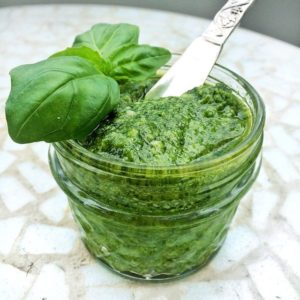How would you like a gorgeous, hormone-supporting, anti-inflammatory recipe?
Of course you would! At least, your hormonally shifting body certainly will appreciate it.
So, get ready for a taste sensation. We’ve created a delicious anti-inflammatory, hormone supporting and gut-friendly salad for you.
But seriously, it’s so good you’ll enjoy it any time.
And, once you’ve tried feta whipped, you’ll never want to have it any other way again.
We used goat feta because it’s easier on the digestive system but if feta’s not your thing swap it out for goat cheese.

Ultimately, it’s a divine dish which also serves up a nice dose of antioxidants, vitamins and minerals.
It also gives you the added benefits of omega-3 essential fatty acids from the walnuts and extra virgin olive oil (EVOO). And by the way, EVOO contains a compound called oleocanthal that scientists have liken to ibuprofen – a bonus for aches and pains.
In addition, the beetroot and greens deliver lots of lovely gut-loving fibre and you get protein from both the feta and the walnuts.
There’s lots of box ticking going on here, right?
We easily polished ours off between us so if you’re feeding more people, simply double, triple or quadruple your ingredients!
Whipped Feta, Beetroot & Walnut Salad
Serves 2
Ingredients:
- 1 x 200g block goat feta cheese
- 2 x medium roasted beetroot
- 1/2-1 cup of raw, unsalted walnuts
- 3-4 cups loose lettuce leaves or liver-loving rocket
- 1 x bunch fresh thyme
- Freshly ground sea salt and black pepper
For added punch: add the beautiful jewel-like colour of highly nutritious pomegranate seeds which are rich in antioxidants and fibre.
Dressing:
- 1/4 cup EVOO – extra virgin olive oil
- 1/4 cup Apple Cider vinegar
- 1/4 teaspoon Dijon mustard
- Juice of half a lemon
- Freshly ground sea salt & pepper
Method:
- Chop the beetroot, drizzle with extra virgin olive oil and fan bake for 30-40 minutes until nicely roasted.
- Pop the feta cheese into a blender or food processor with a dash of extra virgin olive oil and whip (you’ll never have cubed feta again!)
- Arrange the lettuce or rocket leaves on a plate or in a bowl and top with feta, beetroot, walnuts and (if using) pomegranate seeds.
- Finally, cut some thyme and sprinkle over top with freshly ground salt and pepper and drizzle with dressing.
Bon appetit!
We hope you love it as much as we do.
If you make it please share over on Instagram or Facebook @menome100










